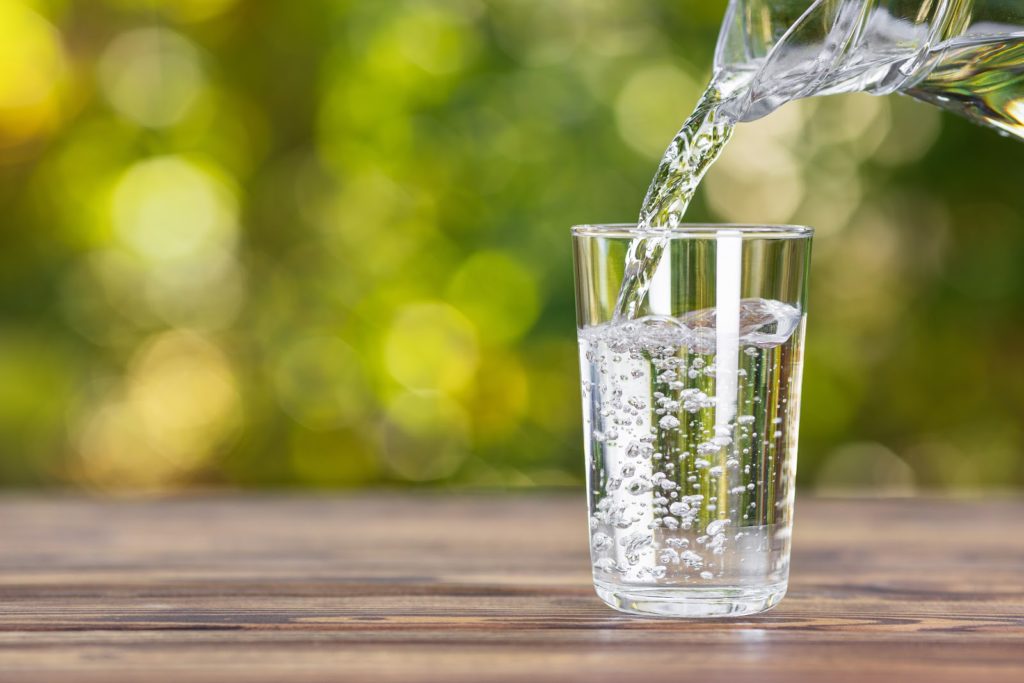If you live in the US, especially the Southwest, you’ve likely come across hard water. No, it isn’t physically hard—it’s called hard water because of the mineral concentration in it. The two minerals that most make up hard water are calcium and magnesium, but a variety of minerals that can make water hard.
Calcium and magnesium are essential minerals in the body, so it can be easy to assume that hard water is harmless, simply a different state of water. But hard water can have some hidden dangers both for your home and your body.
In our latest blog, we tackle the topic of hard water and explain why there’s more than meets the eye.
Spotting Hard Water
As you could probably guess, hard water doesn’t look any different from soft water. If you can’t tell from the eye test, then how will you know? The answer is deposits.
Since the mineral composition in hard water tends to be high, it will leave residue on various surfaces. For instance, hard water tends to leave small spots on glasses and silverware. Ever scrub a piece of silverware, only for it to look a little dirty after it dries? It may not be your cleaning skills, it’s likely your water.
Another telltale sign of hard water in your home is ever-reducing water pressure. The high mineral content in the water can actually reduce the amount of space in your pipes, reducing water flow. When the water does come out, it may leave lime and rust in its wake, like in the picture below.

Finally, you may notice hard water on your clothes in the form of stains. Sometimes, clothes will get stained as they come out of the washing machine, as well as may wear out faster.
How Hard Water Forms
One of the first questions people ask when they learn about the prevalence of hard water is why is there so much? Hard water typically forms from water passing through limestone and chalk deposits, among others.
When the water passes through these deposits, magnesium and calcium ions are dissolved into the water, turning it into hard water. The trouble is, much of the water supply in the U.S will run into these types of deposits at some point, meaning much of America will use hard water at some point.
Hard Water: How It Affects You And Your Home
We’ve discussed some of the ways in which hard water can be harmful to your home. Spots on silverware, the wearing down of clothes, and other harmful effects can make living at home inconvenient. Unfortunately, the issues with hard water don’t stop at your clothes and faucets.
The truth is that hard water can have adverse effects on your health as well, in more ways than you think.
Harming Your Skin
The most common issue that arises from the use of hard water is skin irritation. The reason for this is that it’s simply bad for washing since it tends to leave soap and other minerals behind on your body. If you’ve bathed with hard water, it can feel like there’s a thin film still on your skin afterward.
This thin film doesn’t just make you feel dirty and itchy, though. It can actually dry out your skin by sucking the moisture right out of your skin. If you have a skin condition like eczema, hard water can be an even bigger problem.
Hair Issues
The same problems that your skin runs into can be attributed to your hair as well. Hard water can dry out your hair, making it harder to keep it clean and moisturized. For people with hair issues like dandruff, hard water can be even more of an issue. Not only do you have to worry about your skin, but your hair may be at risk as well.

Harming Your Appliances
Perhaps one of the worst issues that hard water can bring to your home is damage to your appliances. Remember those deposits that tend to sit on silverware and faucets? They don’t just look bad, but they can actually lead to serious damage if unchecked.
This happens due to the build-up of sediments that lay in the water. These sediments accumulate on parts in your appliances and can gum up the systems that the appliances rely on. You may notice some small issues here and there, not knowing that the water running through it may be the culprit.
Health Risks
Unfortunately, the same way that your appliances can be harmed, so too can your body. Some hard water contains excessive amounts of chlorine and other harmful chemicals that can get into the respiratory and cardiovascular system. Small amounts aren’t too bad, but excessive amounts can lead to health issues, including certain cancers.
If you aren’t sure what the composition of your water is, consider having it professionally tested.
So What Can You Do To Soften Your Water?
So we know that hard water is inconvenient at best and potentially deadly at its worst. But what can you do to solve this?
Well at Sun-Tech Services, Inc., we deal with just that! We deliver proven Kinetico water systems that soften your water and give you peace of mind. Contact us today to learn more about our systems!

